-
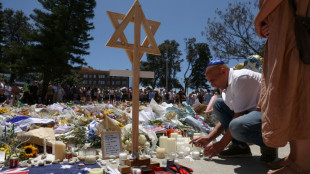 Bondi shooting shocks, angers Australia's Jewish community
Bondi shooting shocks, angers Australia's Jewish community
-
Markets rise even as US jobs data fail to boost rate cut bets
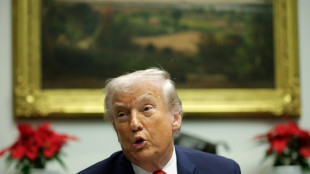
-
 Senegal talisman Mane overcame grief to become an African icon
Senegal talisman Mane overcame grief to become an African icon
-
Carey pays tribute to late father after home Ashes century

-
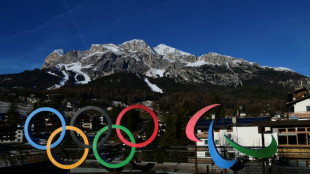 'Many lessons to be learned' from Winter Games preparations, says ski chief
'Many lessons to be learned' from Winter Games preparations, says ski chief
-
Emotional Carey slams ton to give Australia upper hand in 3rd Ashes Test
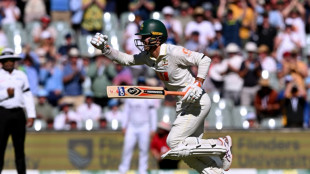
-
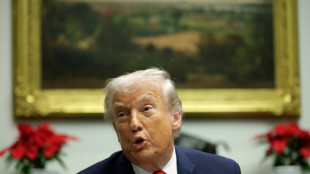 Asian markets mixed as US jobs data fails to boost rate cut hopes
Asian markets mixed as US jobs data fails to boost rate cut hopes
-
Carey slams ton as Australia seize upper hand in third Ashes Test
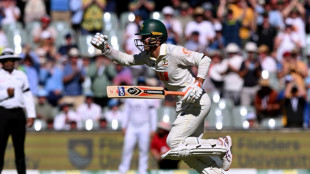
-
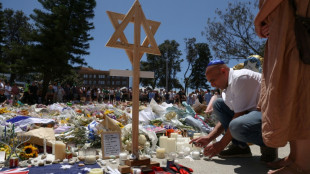 Bondi shooting shocks, angers Australia Jewish community
Bondi shooting shocks, angers Australia Jewish community
-
Myanmar junta seeks to prosecute hundreds for election 'disruption'
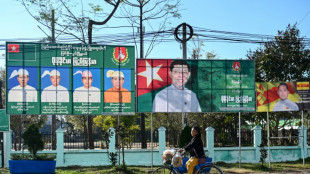
-
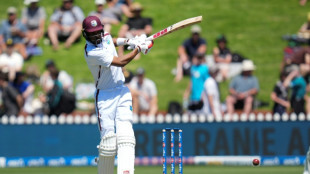 West Indies hope Christmas comes early in must-win New Zealand Test
West Indies hope Christmas comes early in must-win New Zealand Test
-
Knicks beat Spurs in NBA Cup final to end 52-year trophy drought

-
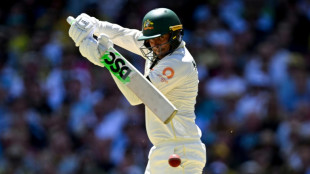 Khawaja revels in late lifeline as Australia 194-5 in 3rd Ashes Test
Khawaja revels in late lifeline as Australia 194-5 in 3rd Ashes Test
-
Grief and fear as Sydney's Jewish community mourns 'Bondi rabbi'
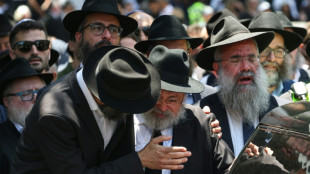
-
 Trump orders blockade of 'sanctioned' Venezuela oil tankers
Trump orders blockade of 'sanctioned' Venezuela oil tankers
-
Brazil Senate to debate bill to slash Bolsonaro jail term
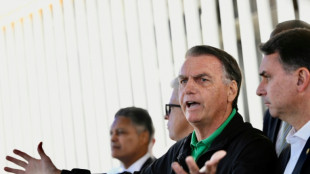
-
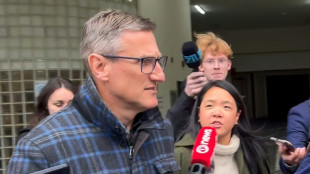 New Zealand ex-top cop avoids jail time for child abuse, bestiality offences
New Zealand ex-top cop avoids jail time for child abuse, bestiality offences
-
Eurovision facing fractious 2026 as unity unravels

-
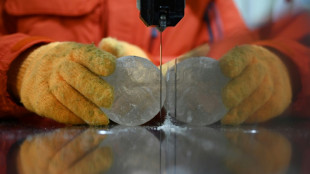 'Extremely exciting': the ice cores that could help save glaciers
'Extremely exciting': the ice cores that could help save glaciers
-
Asian markets drift as US jobs data fails to boost rate cut hopes
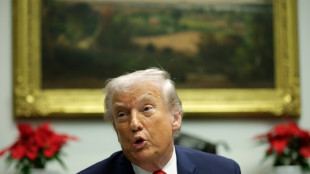
-
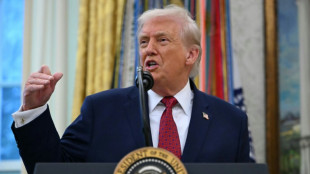 What we know about Trump's $10 billion BBC lawsuit
What we know about Trump's $10 billion BBC lawsuit
-
Ukraine's lost generation caught in 'eternal lockdown'
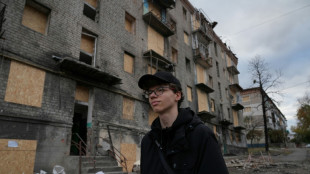
-
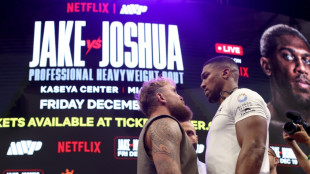 'Catastrophic mismatch': Safety fears as Jake Paul faces Anthony Joshua
'Catastrophic mismatch': Safety fears as Jake Paul faces Anthony Joshua
-
Australia's Steve Smith ruled out of third Ashes Test

-
 Khawaja grabs lifeline as Australia reach 94-2 in 3rd Ashes Test
Khawaja grabs lifeline as Australia reach 94-2 in 3rd Ashes Test
-
Undefeated boxing great Crawford announces retirement
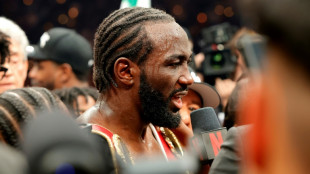
-
 Trump says orders blockade of 'sanctioned' Venezuela oil tankers
Trump says orders blockade of 'sanctioned' Venezuela oil tankers
-
UK experiences sunniest year on record
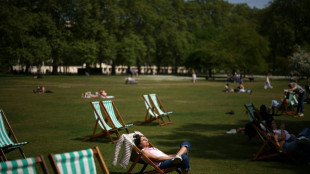
-
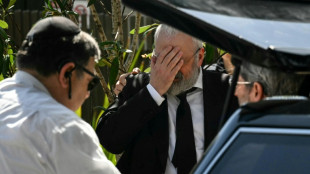 Australia holds first funeral for Bondi Beach attack victims
Australia holds first funeral for Bondi Beach attack victims
-
FIFA announces $60 World Cup tickets after pricing backlash
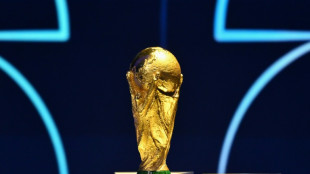
-
 Maresca relishes support of Chelsea fans after difficult week
Maresca relishes support of Chelsea fans after difficult week
-
AELF Acquires Two 737-800s From ICBC

-
 Diageo Agrees to Sell EABL Shareholding to Asahi
Diageo Agrees to Sell EABL Shareholding to Asahi
-
Over 40% of Adults Struggle to Swallow Pills - BioNxt Targets a Global Adherence Problem with Rapid-Dissolving Thin-Film “Melt-in-Your-Mouth” Therapies

-
 Pulsar Helium Awards Security Based Compensation
Pulsar Helium Awards Security Based Compensation
-
Nested Knowledge and Pharmacy Podcast Network Announce Strategic Collaboration to Advance Evidence-Based Podcasting in Healthcare

-
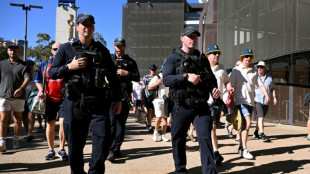 Players pay tribute to Bondi victims at Ashes Test
Players pay tribute to Bondi victims at Ashes Test
-
Costa Rican president survives second Congress immunity vote
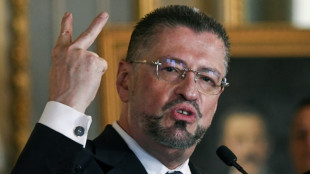
-
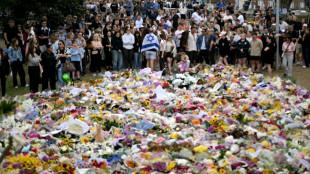 Married couple lauded for effort to thwart Bondi Beach shootings
Married couple lauded for effort to thwart Bondi Beach shootings
-
Australia holds first funerals for Bondi Beach attack victims
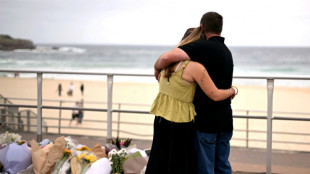
-
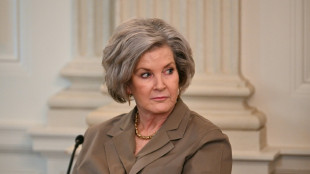 Trump has 'alcoholic's personality,' chief of staff says in bombshell interview
Trump has 'alcoholic's personality,' chief of staff says in bombshell interview
-
Rob Reiner killing: son to be charged with double murder
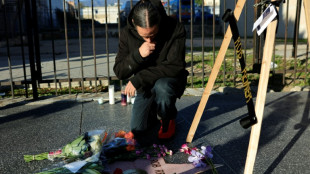
-
 Chelsea battle into League Cup semis to ease pressure on Maresca
Chelsea battle into League Cup semis to ease pressure on Maresca
-
Netflix boss promises Warner Bros films would still be seen in cinemas
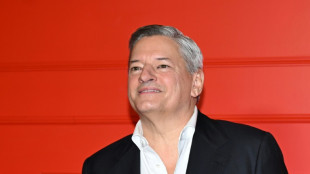
-
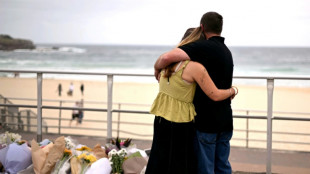 Grok spews misinformation about deadly Australia shooting
Grok spews misinformation about deadly Australia shooting
-
Stocks mostly retreat on US jobs, oil drops on Ukraine hopes
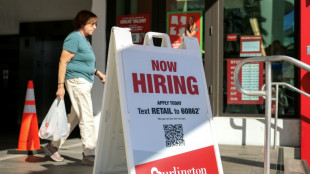
-
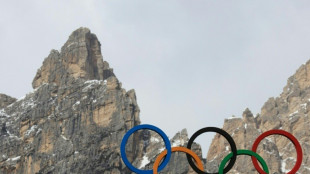 Artificial snow woes for Milan-Cortina Winter Olympics organisers
Artificial snow woes for Milan-Cortina Winter Olympics organisers
-
Trump imposes full travel bans on seven more countries, Palestinians

-
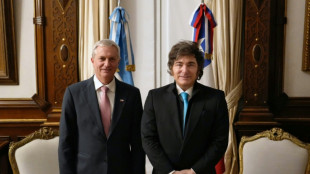 New Chile leader calls for end to Maduro 'dictatorship'
New Chile leader calls for end to Maduro 'dictatorship'
-
Shiffrin extends slalom domination with Courchevel win
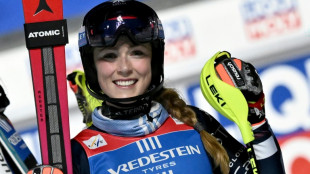
Reverse Apartheid" in SA?
Recent claims have surfaced suggesting that white South Africans face systemic discrimination akin to apartheid, a term historically associated with the institutionalised racial segregation of black South Africans by the white minority from 1948 to 1994. These allegations, often amplified on social media and by certain political figures, point to issues such as land reform policies, farm attacks, and affirmative action programmes as evidence of a supposed "reverse apartheid." This article examines the validity of these claims, exploring the socio-political context, economic realities, and lived experiences in contemporary South Africa.
The notion of apartheid against whites primarily stems from debates over land reform. In 2025, South Africa’s government, led by President Cyril Ramaphosa, implemented a law allowing expropriation of land without compensation under specific conditions. The policy aims to address historical inequalities, as white South Africans, who make up roughly 8% of the population, still own a disproportionate share of arable land—estimated at over 70%—decades after apartheid’s end. Critics argue this policy targets white farmers unfairly, with some claiming it constitutes racial persecution. However, no documented cases of such expropriations have occurred to date, and the policy requires judicial oversight to ensure fairness. The land reform debate is less about race and more about correcting colonial and apartheid-era dispossessions, though its implementation remains contentious.
Another focal point is the issue of farm attacks, which some allege are racially motivated against white farmers. South Africa’s rural crime rates are high, with farmers of all backgrounds facing risks due to the country’s economic inequality and unemployment, which hovers around 33%. Data from the South African Police Service indicates that farm attacks, while tragic, are not disproportionately racial. In 2024, approximately 50 farm murders were recorded, affecting both white and black farmers, with motives often tied to robbery rather than race. Nonetheless, the narrative of a "white genocide" persists, fuelled by inflammatory rhetoric from figures like Julius Malema of the Economic Freedom Fighters, whose past chants of "Kill the Boer" have been widely condemned. Courts have ruled such statements as hate speech, and Malema has since distanced himself from inciting violence.
Affirmative action policies, designed to uplift historically disadvantaged black, coloured, and Indian populations, are also cited as evidence of anti-white discrimination. Programmes like Black Economic Empowerment (BEE) prioritise non-white hiring and business ownership to address the economic legacy of apartheid, where whites dominated wealth and opportunity. Some white South Africans, particularly Afrikaans-speaking Afrikaners, feel marginalised, claiming these policies limit their job prospects. For instance, in 2018, white employees at the Sasol corporation protested against alleged exclusion from bonus schemes. Yet, economic data paints a different picture: white South Africans still enjoy higher average incomes and lower unemployment rates (around 7%) compared to black South Africans (over 40%). The Gini coefficient, a measure of inequality, remains among the world’s highest at 63.3%, reflecting persistent disparities that affirmative action seeks to address.
Social tensions also play a role. Many white South Africans report feeling culturally alienated in a nation where African languages and traditions dominate public life. Afrikaans, once a symbol of white authority, is less prominent in schools and government, prompting some to perceive this as erasure. Conversely, black South Africans argue that these shifts are necessary to reflect the country’s 80% black majority. Incidents of racism, such as black students reporting unfair treatment in schools, highlight that prejudice cuts both ways, complicating claims of one-sided oppression.
The "apartheid against whites" narrative has gained traction internationally, particularly in the United States, where former President Donald Trump in 2025 claimed white South Africans face "genocide." He offered asylum to white farmers, citing videos purportedly showing attacks. These claims were debunked, with South African authorities and independent analysts confirming no evidence of genocide. The videos, some dating back to the apartheid era, were misrepresented. Such international interventions often overlook South Africa’s complex reality, where poverty, not race, drives much of the crime and unrest. The country’s Truth and Reconciliation Commission, established post-1994, aimed to heal racial divides, but its recommendations for economic justice remain only partially implemented, leaving both black and white communities frustrated.
South Africa’s challenges—high crime, unemployment, and inequality—stem from apartheid’s long shadow, not a new racial regime. White South Africans, while facing real anxieties about their place in a transforming society, retain significant economic advantages. Claims of apartheid against whites exaggerate isolated incidents and mischaracterise policies aimed at historical redress. The country’s path forward lies in addressing poverty and fostering dialogue, not in perpetuating narratives of racial victimhood.

Will Trump's deportations be profitable?

Ishiba's Plan to Change Power in Asia

EU: Online platforms to pay tax?

EU: Energy independence achieved!

EU: Record number of births!

EU: Military spending is on the rise!

Crisis: EU bicycle production drops!

EU: Foreign-controlled enterprises?

EU DECODED: Deforestation law’s trade-offs

Underwater Wi-Fi: European startups woo investors

Cultural year 2024: between Qatar and Morocco



